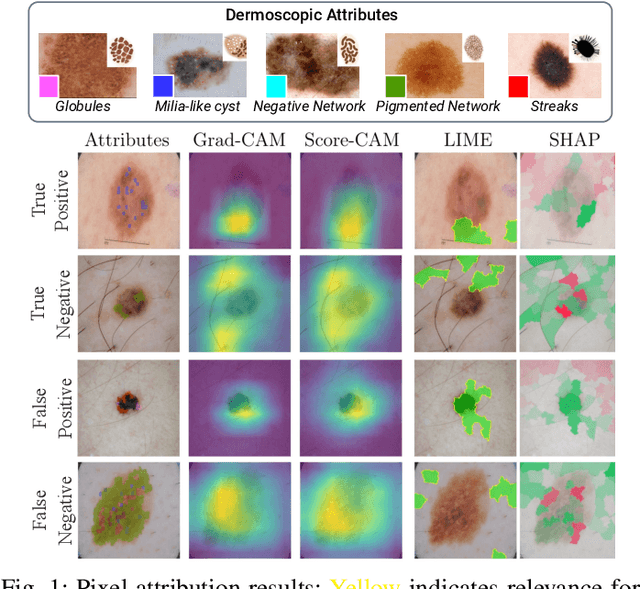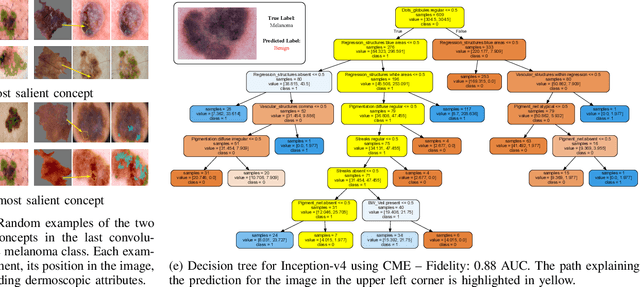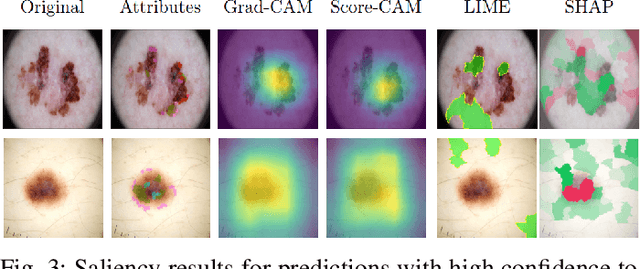Are Explanations Helpful? A Comparative Analysis of Explainability Methods in Skin Lesion Classifiers
Paper and Code
Dec 04, 2024


Deep Learning has shown outstanding results in computer vision tasks; healthcare is no exception. However, there is no straightforward way to expose the decision-making process of DL models. Good accuracy is not enough for skin cancer predictions. Understanding the model's behavior is crucial for clinical application and reliable outcomes. In this work, we identify desiderata for explanations in skin-lesion models. We analyzed seven methods, four based on pixel-attribution (Grad-CAM, Score-CAM, LIME, SHAP) and three on high-level concepts (ACE, ICE, CME), for a deep neural network trained on the International Skin Imaging Collaboration Archive. Our findings indicate that while these techniques reveal biases, there is room for improving the comprehensiveness of explanations to achieve transparency in skin-lesion models.
 Add to Chrome
Add to Chrome Add to Firefox
Add to Firefox Add to Edge
Add to Edge